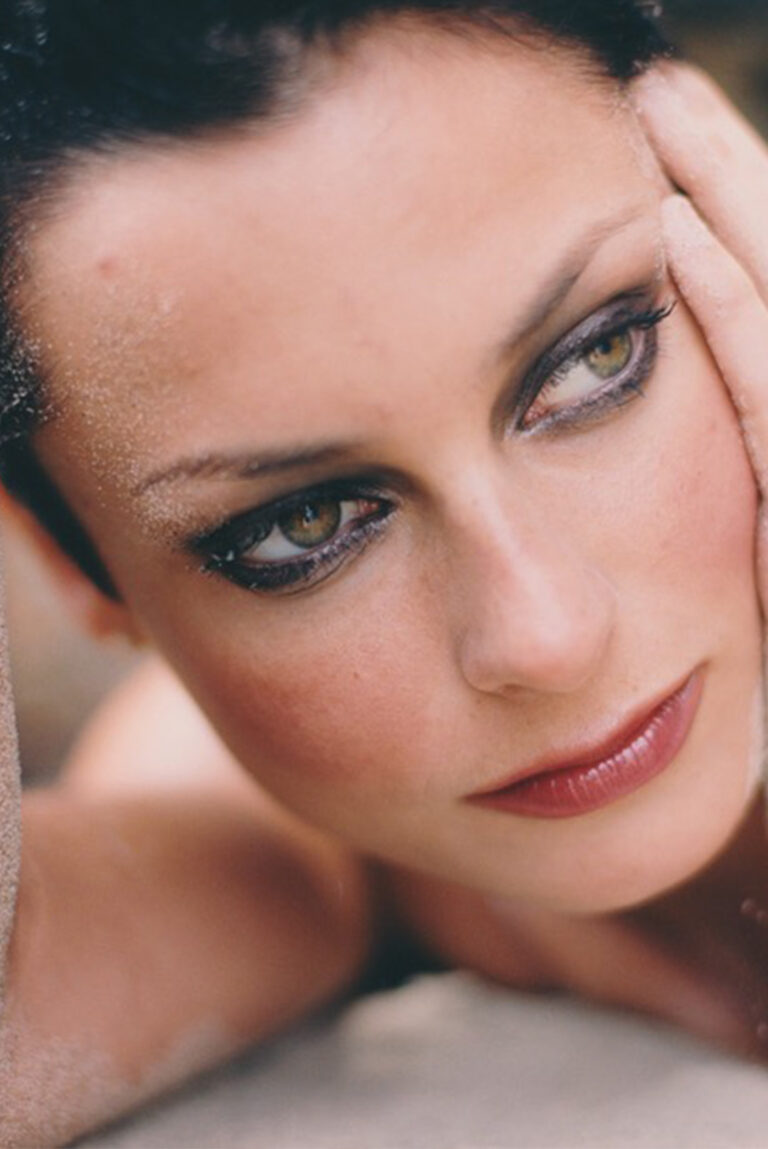From Hollywood to a Holding Tank in 22 Months

Part 1: “A glass of wine with dinner.” A seemingly harmless thought that created an avalanche of chaos in my life after nearly four years of sobriety. During that period of time, I had fallen in love, married, and had two children. I was living an enviable life in Los Angeles, having married into a world of privilege, access, and insulation, with parties, celebrities, and a glamorous red-carpet lifestyle. That simple thought led me down the slippery path where I metastasized from a lady-who-lunches at Neiman Marcus, sipping her Chardonnay, into a strung-out domestic violence perpetrator in a holding tank, in less than two years.
Before the marriage, I had become sober through a few rehab stints, having lived through some dark days around my drinking. But truthfully, somewhere to my core, in my sobriety, I told myself that I’d only been abusive with alcohol because I’d been lost on my own personal path—I didn’t truly have a drinking problem, it was merely circumstantial. My inner compass pointing me to my purpose, stability, and relationships had simply been off-track back in those days, I reasoned. Now that my compass was “fixed” and I’d stepped into the life of my dreams, I felt safe from being out of control with my relationship to alcohol. Having a glass of wine at a meal or a cocktail with my mommy group on one of our nights out seemed completely doable. And there were many around me who echoed that foregone conclusion, fully supporting me in this exploration around my drinking. And we all agreed … if it didn’t work out, I could always revisit sobriety.
Hindsight is 20/20, and at that time, I had no clue that it doesn’t work like that; sobriety isn’t a revolving door. When drugs and alcohol hit the system, especially after a period of abstinence, you essentially lose any ability to choose what comes next. You can’t just quit whenever you feel like it. That beast of addiction releases you from its death grip, and the merry-go-round hurls you off when it’s good and ready … if at all. And it’s progressive, in that the cravings and the obsessions for more, always more, keep driving you onward. I didn’t know that when I decided to pick alcohol back up. I didn’t understand that I was risking everything, in my need to greedily have it all. And I hadn’t truly experienced the breadth and depth of my addiction fully, not comprehending what this thing was capable of doing to my mental, physical, and spiritual well-being. That I wouldn’t end up caring about everything that I held dear to me.
I unknowingly had a world of pain ahead. In the head-on collision that is active addiction, I couldn’t admit to my innermost self that I was an alcoholic. I had to earn that knowledge experientially in the field, with stone-walled denial in the face of increasingly horrifying bottoms. There’s a madness to whistling Dixie in the dark when you’re literally dying and everything around you is going up in flames.
Here’s how it began: the first drinks were fun. I felt a part of the social groups we frequented in a way I hadn’t before, and that felt nice. I loved the buzz, but noticed that I wasn’t able to figure out my limits, getting sloppy with too many drinks right out the gate. I told myself it was because I wasn’t used to drinking, that it would level out with time. I began wine tasting at home, and then buying Champagne …which quickly led to me hiding bottles of it in my closet. I’d secretly take sips, taking the edge off of parenting stresses, especially during the witching hour of bath/bedtime, with two small kids. This led to me wanting to go out more to drink, so we began accepting invites to parties and premieres around town. Then came the after-hours parties, the after-after-hours parties, and the drinking obviously increased within all those debaucherous contexts.
I wasn’t consciously taking note of the shift in lifestyle, or of my priorities changing as a parent. I was just loving all the socializing, the entrée, the excess. It was fun dressing up, going out, and seeing where the night took us. The more we went out, the more we were celebrated in the company of A-listers and in the press. It was dazzling, but I also had moments of feeling like an imposter, riding on my husband’s coattails in his world. What’s more, being surrounded by the flaunted excellence of others further underscored my insecurities at not having found my own sense of professional purpose. Those underlying feelings of “less than” and deep unworthiness I had been shackled with since my teens ended up propelling my drinking into warp speed, and pretty swiftly moved me into recreational drug use.
With the combo of those two together, I became insane, and my relationship quickly became a nightmare. It was like taking the lid off of every unhealed part of myself and letting it come out to play in a world of privilege, with endless opportunities for bad behavior—all while in the public eye. The sober state somehow became the less desirable one, as the shame for my misdeeds done under the influence came to haunt me when sober, and that was insufferable. I drank to obliterate the memories of all the bad choices I was making, crossing the invisible line of it being fun, and actually moving into seeking the dark oblivion. The numbing-out increased as the experimentation expanded. I truly couldn’t stop that addiction train once it left the station, when I made that decision to drink again. I tried to manage or control it at times, by counting drinks, slowing down, not going out, restricting myself, or going cold turkey, but I always ended up at the same desolate landscape: in a loaded stupor with drama on my doorstep.
The worst aspect is that I had a constant feeling of shame and self-loathing for not showing up for my kids on a daily basis. I was failing them as their mother. I didn’t know how to make my way back to them, and that disconnect was heartbreaking. And I felt so far from my spirituality. I had been a meditator and a seeker since my teens, which had led me to study in India for many years. I couldn’t access that spirituality as a lifeline in my full-blown addiction—when I needed it the most. I had turned my back on a faith that had mattered to me, that had carried me. I felt lost and unforgivable for having chosen all the wrong things, and I didn’t know how to make my way back into the Light.
Here’s what I know. We all have a shadow self that we repress, a part of us that needs acknowledgment as well as taking responsibility for it to heal. The part of us we dare not carry, be, or allow others to see. And I had my shadow to be sure. When I was drinking, this nether part of me, which I had always repressed while sober, ran the show. It demanded its due for being shut up in the dark of my subconscious basement for far too long. It was angry, at times rageful, overtly sexual, selfish and self-centered, insatiable for all the shiny things, dissatisfied with everything—with an overlay of the chaotic frequency of addiction, which is downright destructive. The mentality was “more is always best.”
No healthy relationship could possibly flourish in that environment, least of all my relationship to myself—which I was running from the most. I didn’t remember I could go back to sobriety again. It’s a dark spot on the memory during active addiction. The forgetting of what had once worked was erased as a possibility to right this horrible wrong. I was in freefall. And the public shaming incidences increased, documented in the press like flags on the field. I had no ability to cope, process, or dig into old ways of managing my drinking as I once had. It felt as if I had no choice in the matter. Those last months of my using became about being under the influence round the clock. My home life was a train wreck, to say the least. I wouldn’t listen to anyone. I internally pleaded to my God for help, but outwardly, I wasn’t open to advice, suggestions, or family concern. I still thought I was fooling people by dressing and looking the part, but in some fleeting moments of mental clarity, I knew I was hurtling toward losing my husband, my children, and quite possibly, my life.
I went to jail at the end of a wretched night in Las Vegas, having thrown a glass in fit of rage at my husband, giving him multiple stitches. I found myself surrounded by derelicts and prostitutes, as I had, by then, become that same low-bottom drunk. These were now my people. It felt about right, where I had landed, in that cell. It made sense to me. My insides matched my outsides at that point in time. On a mental loop was: “What’s it going to take to end this?”
Part two to follow.
